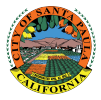On March 15, 2023, the City of Santa Paula City Council adopted Ordinance No. 1327, implementing a by-district election system of five City Councilmembers. A new district map was selected along with its election sequence: Districts 1 and 5 are up for election in 2024, and Districts 2, 3 and 4 up for election in 2026. The Council will continue to select the Mayor and Vice-Mayor to serve a one-year term each December.
While the district formation process is complete, this site remains live to serve as an archive of the election changes including the schedule, draft maps and resources.
Background
On February 22, 2022, the City received a letter challenging the City’s current election system and asserting that the City’s at-large election system violates the California Voting Rights Act (CVRA).
The City of Santa Paula is not unique in this situation. Agencies throughout the State have received similar demand letters prompting a shift from at-large to district-based elections. While it is unclear if the City’s current system runs afoul of existing law, the cost of litigation to defend the at-large system, coupled with the track record of other public agencies that have fought similar challenges, poses a significant financial and legal risk to the City.
In light of the letter and to protect the City from financial and legal risks, Santa Paula has taken steps to consider transitioning its election process to district-based elections.
District Elections
The City of Santa Paula, like hundreds of cities and school districts across the state, is making a change in how voters elect its City Councilmembers. Beginning in 2024, voters will vote for one City Council Member who lives in their district. This will replace the current system of at-large citywide elections in which voters have the ability to vote for all City Council Members.
We need your help to make this change and draw City Council districts!
One of our primary goals when drawing City Council districts is to draw lines that respect neighborhoods and communities of interest. So we want to know: What do you consider the boundaries of your neighborhood? Which areas should be in just one district for fair representation?
How to participate?
Share your specific thoughts, draw a map, or attend an upcoming workshop to get involved!
- Submit written testimony about your community, the districting process, or a specific map to districting@spcity.org.
- Click here to see the calendar of workshops and public hearings at which you can speak about the process or a specific map.
- Click here to access the Interactive Review Map to explore the City’s demographics.
At the hearings and workshops, we encourage members of the public to share one or more of the following items:
- Define your neighborhood or community of interest
- Explain why you believe districting is relevant to your community
- Get the tools you need to draw a map of one district or of all five districts
- Share your opinions of the draft maps
- Talk to your neighbors and local organizations
- Ask questions or provide general comments about the districting process
